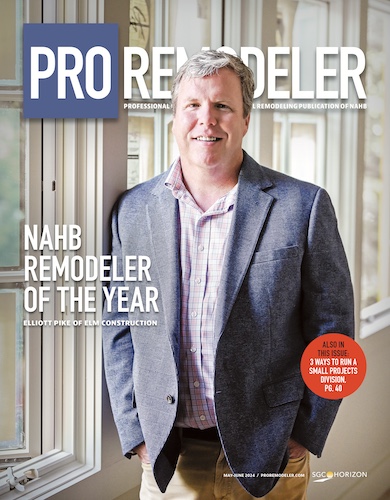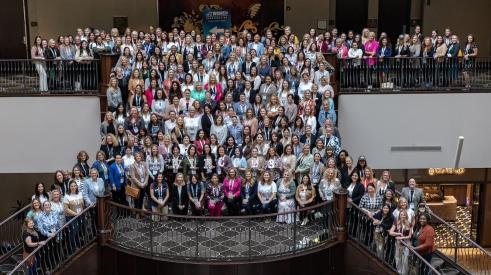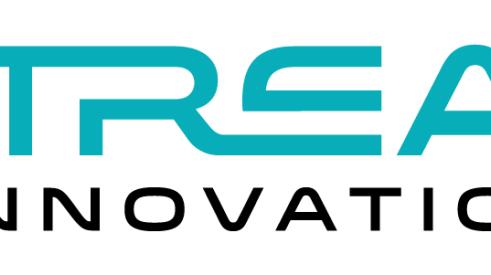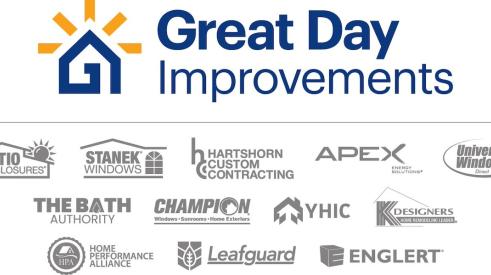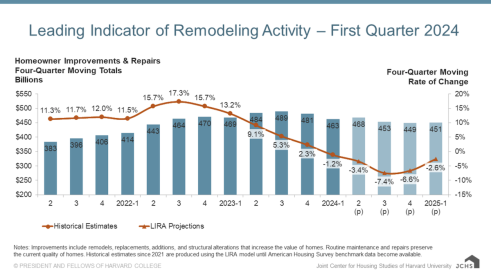What do the Democratic front-runners have to do with women in leadership? A lot.
In Courtney Enlow’s essay, An All-Caps Explosion of Feelings Regarding the Liberal Backlash Against Hillary Clinton, Enlow asks, “Can you imagine how absolutely infuriating it must be for Hillary to have to work so hard to be likable, but strong? Hip, but above the need to be seen as cool? For everything she says to be perfect because she'd be crucified otherwise, meanwhile Bernie Sanders could say pretty much anything he wants and it would be seen as the [expletive] revolution?”
Enlow continues to point out the behaviors that are considered acceptable, and encouraged, from the Sanders campaign, are criticized when employed by the Clinton campaign.
Whether you are part of the 99% or the 1%, you’ve probably witnessed or experienced gender bias when it comes to female leadership.
This double standard is not just frustrating; it's oftentimes the reason women are passed over for promotions or fail to thrive in leadership positions. If women are too strong or too direct, they risk being labeled 'bossy' or ‘a bitch,' while male counterparts are often seen as decisive, or strong negotiators. Women are even criticized if they aren't smiling at work, and judged not only on performance, but appearance and demeanor, while men are afforded opportunities on perceived potential.
On the flip side, if women are too nice, or too soft, in their approach, they are labeled as weak, and their leadership abilities are questioned. There's actually an app that prevents women from sounding too much like, well, women.
The Just not Sorry app for Google Chrome functions as a spellcheck of sorts for emails to eliminate passive phrases or qualifying words, such as, “just,” “sorry,” and “actually,” to name a few. As Christina Cauterucci points out in her article, New Chrome App Helps Women Stop Saying “Just” and “Sorry” in Emails, “One reason why women have adopted these kinds of speech and writing patterns is because, historically, they’ve gotten pushback for appearing too decisive and demanding (read: just as decisive and demanding as men).”
As females leaders we hear we can't be too direct, or too passive, or too sexy, or too butch, but we rarely hear what we can be. Our inboxes are flooded with countless articles that tell us how we can change to make the workplace work better for us. Without a workplace sponsor or advocate, it’s hard for female leaders and budding leaders to overcome biases and establish themselves without risking their current position.
Now, I'm not advocating that women can, or should, be solely responsible for creating gender equality by changing (only) their behaviors. With 57% of women in the workforce, it’s the responsibility of the workplace as a whole to provide an inclusive and empowering environment for all employees and clients, no matter where they fall on the gender spectrum.
Not only will employees thrive, but sales will increase. More and more women are accumulating wealth and making decisions, and they want to spend their money with companies that share their values and employ people like them. 85% of all purchase decisions, including remodeling, are made by women. In a recent survey, 743 women with at least $3 million in investable assets were interviewed, 61.2% accumulated their fortunes through corporate employment, their own or a family business or a professional practice. Only 38.8% of the women had married into or inherited their money.
What does this mean for the remodeling industry? By eliminating the double standard, organizations can create a welcoming workplace and promote growth (for both their teams and bottom line!). Here are a few tips:
Diversity Training
Mandated diversity training certainly won’t be the end-all, be-all in eliminating workplace inequality, but it is a step to show your organization’s commitment to equality, and can be effective in helping team members overcome biases they may not have realized they possess. Plus, according to Diversity Builder, effective diversity training programs can improve employee retention, increase morale, reduce workplace harassment and improve recruitment. Once you’ve created a solid training program, offering diversity and inclusion training as part of your organizations onboarding process will help current and new associates accept differences as part of your culture, rather than view the training as a fix to a perceived problem.
Relationship & Team Building
Authentic relationships are one of the easiest ways to break the gender bias, but developing such relationships can be hard, especially in historically male-dominated industries. By developing meaningful relationships and building cohesive teams, the focus is on the individual, followed by their role and minimizing the gender difference.
Organizations can take several approaches to encourage relationship and team building. I’m a big fan of book clubs – everyone has an individual takeaway which can offer insight into unique personalities and drivers. Our leadership team at Mosby is currently reading The Advantage, by Peter Lencioni. The book offers several disciplines to help organizations become healthy by overcoming politics and confusion.
Off-site team building activities are also a fun and effective way to get to know one another. My suggestion is to find a team building exercise that is unlikely to happen to any team members in real life. This takes away any pre-conceived biases, and keeps the focus on skills and trust, versus gender and/or daily role. Personally, I like Escape the Room; it’s touted as an intense game of cooperation and is available in many cites.
Workplace Perks
Every workplace has benefits outlined in their recruiting materials and employee handbooks, but unspoken perks often exists, and tend to favor males. These can include lunches, happy hours, golf outings, etc., and can give employees an advantage or create undue tension. In a recent survey revealed in Work With Me: The 8 Blind Spots Between Men and Women in Business, 81% percent of women say they feel some form of exclusion at work, while 92% of men don't believe that they're excluding women. When creating unique opportunities for bonding or socializing, it’s important to make sure they are accessible to all employees, regardless of gender or interests.
In a previous role, my COO would often lunch with leaders in our organization. He had a rule that he would not have lunch with a female employee without a third person present to ensure there was no perception of impropriety. At first glance, this seems commendable, but as one of the few female leaders in the company, I was short-changed of one-on-one opportunities with my boss because of my gender.
At Mosby, we invite all associates to attend management meetings. This levels the playing field, and gives everyone the same opportunity when it comes to spending time with leadership. We’ve also extended an open invitation for any and all associates to join our President for breakfast once a month for casual conversation. While these provide opportunities for bonding in a professional setting we’ve also taken steps to provide authentic bonding opportunities based on interests through our social activities team.
By putting politics, and outdated labels, aside, we can create opportunities for future leaders and continued industry growth. What programs does your company offer to encourage women in leadership?
Read this article as it appeared in the April 2016 issue here.
Related Stories
NARI Renames Awards Program
The awards program has a new name, but continues its tradition of recognizing the best in residential remodeling
Registration Open for Women in Residential+Commercial Construction Conference 2024
Join 300+ women in construction for three days of impactful idea-sharing and networking in Phoenix
Power Home Remodeling Expands Financing Offshoot with $400M from Goldman Sachs
Industry-leading home improvement company Power plans to grow its fintech offshoot fivefold with new investment
Great Day Improvements Acquires LeafGuard and Englert
Leading home improvement company Great Day Improvements purchases two major brands from private equity firm Audax
Metros with the Highest and Lowest Remodel ROI
First-time homebuyers can find fixer-upper listings priced between 5 to 10% lower than move-in ready homes. The high return on investment of these projects shows that remodeling remains a strong option to navigate the current housing market
Latest Private Equity Activity Signals Continued Strength in Home Improvement
A hot month for private equity means the industry remains opportunity-rich
Pro Remodeler Wins Two Prestigious Jesse H. Neal Awards
The editorial team was honored with one of B2B journalism's most prestigious awards in the categories of Best Subject-Related Package and Best Range of Work by a Single Author
Business Coach Cited in Attorney General Lawsuit Against Contractor
A New England contractor faces a civil suit alleging his company’s growth was tied to a business coach with a model that “encourages fraud"
Harvard Says Remodeling Spending Downturn to Slow
Could the drop in remodeling spending from post-COVID levels regulate soon?
Power Home Remodeling Now Offers Subsidized Childcare
The home improvement giant's move seeks to address a greater industry issue
